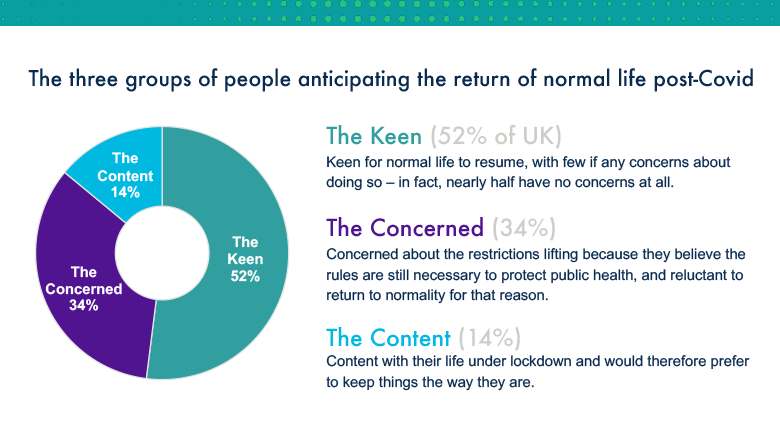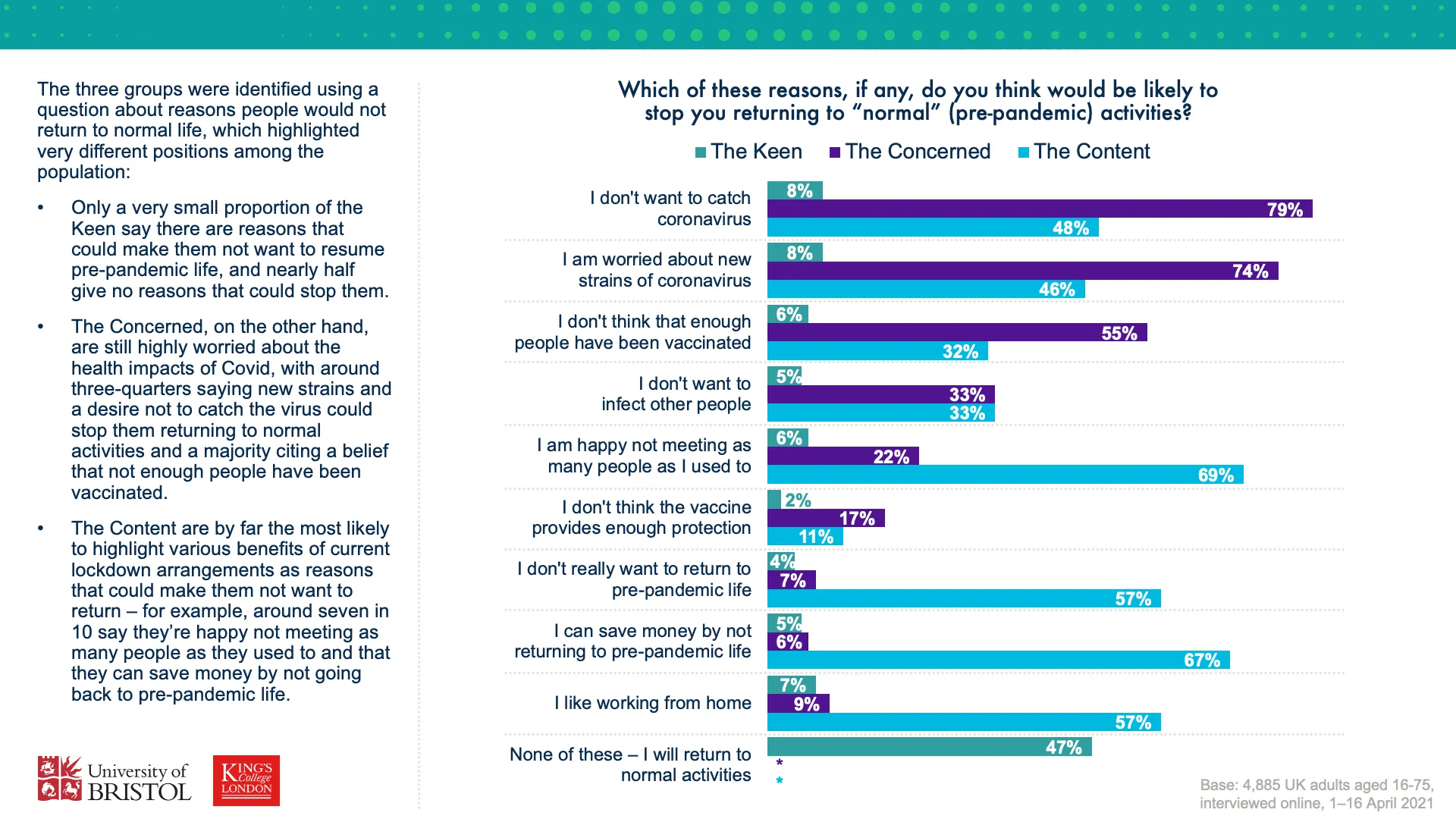19 May 2021
As lockdown eases, not everyone is looking forward to a return to normality
Bobby Duffy
The UK is made up of different groups with very different feelings about the return

Are you keen to get back to normal life, concerned about society opening up too quickly, or pretty content with locked-down living?
Whichever group you’re in, you’re not alone, as these are the three major segments of the UK population we identified in a major new study of our attitudes to easing the restrictions, by King’s College London and the University of Bristol.
The “Keen” are the largest group, making up around half the UK population. Their defining feature is that when asked what would stop them returning to “normal” life – from health concerns for themselves or others, to being happy working from home – their most common response is “nothing”. They just want to get back.
The other half of the population split into two groups with very different reasons for being more reticent. The bigger group – the “Concerned”, who represent around a third of the public – remain worried about catching Covid, the emergence of new strains, and whether we’ve vaccinated enough people to justify opening up.
But there are also one in seven people – the “Content” – who say they’re quite enjoying aspects of our new way of living. They’re saving money, like working from home – and are just happy meeting fewer people than they used to.

The three groups are pretty evenly spread across the population, by age, gender and social class – although the Content have higher education levels. They have more choice and resources to make the most of socially distanced living.

We’ve been conducting similar analyses of the public throughout the pandemic, and the evolution of the different ways we have split into distinct groups at different stages of the crisis gives a real insight into how quickly the context has changed in the last year.
In the early stages of the pandemic in April 2020, as the reality of lockdown was sinking in, we segmented the public into three groups: the “Accepting”, the “Suffering” and the “Resisting”. Nine in 10 people were pretty much behind in the restrictions, split more or less in half between those who were relatively unperturbed and those who were finding it really tough. Only around one in 10 strongly resisted the measures.
But by the summer, when the first easing of lockdown started, this relative unity had fractured. Around four in 10 were “Trusting”, putting their faith in the government’s plan to relax the restrictions. A similar proportion were “Dissenting”, thinking things were opening up too quickly. At the other end of the spectrum, around two in 10 were “Frustrated” and eager to get back to normality even quicker.
Throughout the pandemic there have been very different perspectives on the same situation. While the virus and the measures to control it have affected absolutely everyone, we’ve all experienced it differently. The factors we’ve differed on have changed as the pandemic has progressed – from the initial impact of a completely new way of living, to our faith in the government to manage a route out, and now, to our own comfort with normal life resuming against a roadmap.
This variety, and the way it cuts across the population, makes it very difficult to manage, for government and employers alike. People are going to be in very different places as they return to some new version of normality, and there will be no easy way to accurately predict the varied mindsets based on simple characteristics like our age.
Uniform rules on what’s expected of our behaviour at work, for example, will be felt entirely differently by different segments of the population.
The next stages of opening up will feel like a huge release to be celebrated for many – but will be a source of anxiety and annoyance to others. It’s going to take a lot of careful handling and flexibility, and an awareness of how the public segment will help us avoid making some wrong assumptions.
Professor Bobby Duffy is Director of the Policy Institute at King’s College London.
